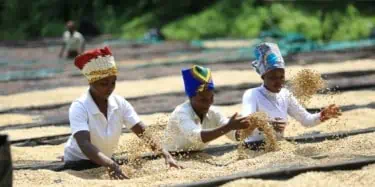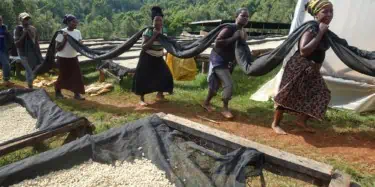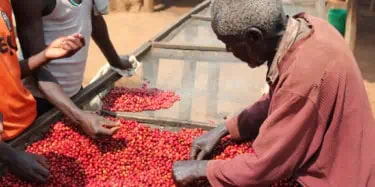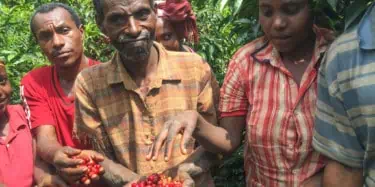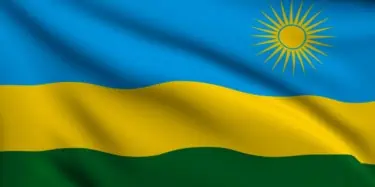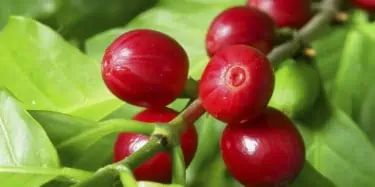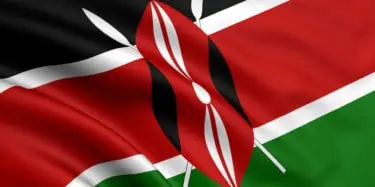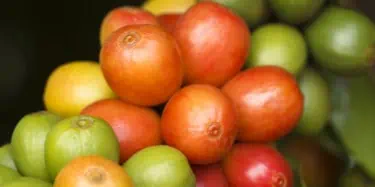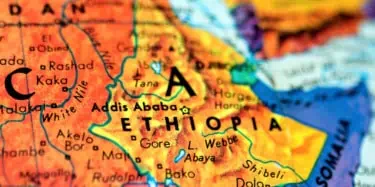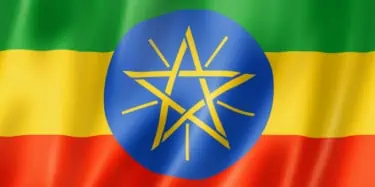By now, most readers of Coffee Review are familiar with the win-win-hypothesis of specialty coffee: If consumers pay more for better coffee from dedicated producers, and if some of the high prices paid by consumers make it back to those producers, they will be encouraged to generate even better coffees, which will please even more consumers, who will gratefully continue to pay higher prices, and
Tasting Reports - Africa
Coffee Review has published more than 250 monthly coffee tasting reports since February 1997. The tasting reports below, focusing on coffees from Africa, appear in reverse chronological order. You may refine your search by using the key word search feature that appears in the page header. The content in tasting reports and associated reviews was correct at the time of publication but may not remain accurate over time.
The Joy of Kenya, Classic Coffee-Producing Origin
What makes a coffee taste like it does? Many factors go into what you ultimately experience in your morning cup. First, there’s the tree variety that produces the coffee. For specialty coffees, the varieties in question are, with rare exceptions, of the Arabica species, and there are hundreds of possibilities. Then, there’s the place in which the tree is grown — the coffee’s terroir. (There is
African Great Lakes Coffees: Burundi, Rwanda, Uganda, Congo, Tanzania
The countries whose coffee regions nestle around the Great Lakes of Central Africa—Rwanda, Burundi, and key growing areas of Uganda, Tanzania, and the Democratic Republic of the Congo—make appearances in the news cycle more often for conflict than for coffee. But these countries are also longtime coffee-producing lands that have, within the last 10 years or so, emerged as important sources of
Organic-Certified Coffees from Africa: Benefits, Challenges, Complexities
Certified organic coffees must be propagated, grown, processed, transported, stored, and roasted without contact with synthetic chemicals—particularly without contact with pesticides and herbicides. The certification process (carried out by a variety of organizations operating inside a common framework) is lengthy, thorough, rather expensive, but apparently reliable and free of abuse. The use of
Coffees of Kenya 2015: Still Great, Still Kenya
One thing that can be said about this month’s survey of 32 Kenya coffees from 26 specialty roasters is that the good samples — and there were many — were not just exceptional, but exceptional in a thoroughly Kenyan way. In fact, the 23 Kenya samples that rated 90 or better often provoked rather repetitive key descriptors: deep, pungent, sweetly tart; black currant, dark chocolate, various citrus
Rwanda and Central Africa: Sweet and a Hint of Savory
Perhaps a more accurate geographical descriptor for the coffee origins we focus on this month may be African Great Lakes coffees rather than Central Africa coffees. The growing regions that produced almost all of the thirty coffees we cupped this month are clustered around or near the gigantic lakes that dominate the geography of the mountainous central-east region of Africa, at or near the
Dried-in-the-Fruit Refinement: Ethiopia and Yemen Naturals
At this moment I am drinking a cup of a coffee labeled “Ethiopia Amaro Natural.” It was sourced and roasted by Old Soul, an artisan baker and small-batch coffee roaster in Sacramento, California. Aficionados and regular readers of Coffee Review know that “natural” is the latest name for coffee dried inside the whole fruit, rather than after the fruit residue has been removed, as is the case with
Rwanda, Burundi and Tanzania
Rwanda and Burundi, two small, mountainous, landlocked countries in Central Africa, have emerged over the last few years as significant producers of high-end specialty coffees. Both started their climb to prominence already in possession of the most fundamental ingredients for success: High growing elevations and extensive plantings of distinctive-tasting heirloom Bourbon-related varieties of
Still Tops: Coffees of Kenya
Generally the central highlands of Kenya produce some of the most complex and subtly distinctive coffees in the world. There are a few other coffee origins/types that may be more distinctive, meaning more different from the sensory norm for coffee: Ethiopia Yirgacheffes, the very finest traditional Sumatras, the small but growing volume of coffee produced in Panama from trees of the Gesha variety.
African Intensity: Yirgacheffe, Sidama and Environs
When we taste our way into the world of southern Ethiopia wet-processed coffees -- the most famous names are Yirgacheffe and Sidamo or Sidama -- we enter a special and different sensory world than the one to which most North American coffee drinkers are accustomed. These coffees, produced largely from heirloom varieties of Arabica that are hardly grown anywhere else in the world, display intense
Alternative Africas: Rwanda, Burundi, Tanzania
Coffees from the mountain ranges and plateaus that parallel the east coast of Africa are among the most distinctive in the world. The great coffees of Ethiopia and Kenya are by far the best known, but other African countries also produce distinguished Arabicas. For this month's article we review twelve coffees, six from Rwanda, four from Burundi, and two from Tanzania. Rwanda and Burundi
Coffees of Kenya: Still Struggling, Still Great
I'm often asked for my opinion on the world's best coffee. Not a particularly informed question, but once it's clear that my questioner is asking for the name of a country rather than for the name of a farm or cooperative, I respond that the world's most reliably good coffee comes from Kenya. I hasten to offer additional caveats: great coffees come from all countries, Kenya is too acidy for
Berries, Wine and Chocolate (Some of the Time): Dry-Processed Coffees of Ethiopia and Yemen
Dry-processed or "natural" coffees from Yemen and Ethiopia (those coffees dried inside the fruit rather than after the fruit has been removed) are the world's original coffees - and also, in their most recent incarnation, one of the newest trends in coffee. Unfortunately, most of the exotically distinctive coffees I reviewed this month with co-cupper Miguel Meza represent the new trend rather than
Alternative Africas: Rwanda, Tanzania, Zimbabwe
Most specialty Africa coffees sold in North America are from Ethiopia and Kenya, the two most distinctive coffee origins in the region and arguably in the world. However, coffee is grown in substantial quantities all along the string of mountains and plateaus extending south from Ethiopia and Kenya. Uganda, Rwanda, Tanzania, Rwanda, Malawi, Zambia and Zimbabwe all produce interesting, at times
Ethiopia and Kenya: The World’s Most Distinctive Coffees
It's something of a no-brainer to claim that Kenya and Ethiopia are the world's two most distinctive (in other words, most different-tasting) coffee origins. Most cuppers would find it difficult to confidently identify the country of origin of a high-grown Central American coffee without a little help. ("A little too soft for a Costa Rica & Panama? Or maybe El Salvador ... or that fruit, could
The Tanzania Peaberry Mystery
Actually two intertwined mysteries - why peaberry, a grade of coffee that is potentially available from any coffee growing region in the world, is so firmly associated with a single origin - Tanzania - that it is 1) usually the only coffee available from Tanzania in specialty stores, and 2) often the only pure peaberry available from any country in specialty stores. It also turned out to be the
Ethiopias and Kenyas
Ethiopia and Kenya are favorite origins for attacking coffee complacency. Think all coffees taste the same? Try a Kenya that tastes as though it were spiked by a fine cabernet, or an Ethiopia Yirgacheffe that tastes like lemon blossoms on a balmy evening. Arguments can be made that other coffee origins produce a more classic cup than Ethiopia or Kenya, but no other origins come close to either
Wet-Processed Ethiopia Coffees
An interesting trivia question to ask people is where coffee originated. Virtually everyone looks confused, and, when pressed, usually tries a Latin-American country: Colombia, say, or Brazil. Of course, Coffee arabica, the species that produces all fine coffees, originated in the highland forests of Ethiopia, in the Horn of Africa. The arabica tree, which still grows wild in the middle tier of
Kenyas and Other East Africas
Specialty coffee professionals tend to be protective of Kenya. For one thing, it remains the world's single most consistent source of superlative coffee. And Kenya is superlative in the particular ways American specialty professionals define superlative: alive with the dry, vibrant sensation called acidity, fruity without cloying sentiment, big and resonant.Furthermore, most specialty folks admire
Straight Coffees from Africa
A good East African coffee has the disconcerting capacity to make coffees from other parts of the world taste rather tame. The robust wininess of a Kenya or the startling floral tones of an Ethiopian Yirgacheffe are among the grand gestures of coffee. Few East African coffees can be accused of timidity. But what do consumers actually taste when they get their bag of Kenya, Ethiopia, or Zimbabwe











